Author: Chris Tou
Worship ~ January 1
Audio Recording
Worship ~ 28 August
Audio Recording
Worship ~ 21 August
Audio Recording
Worship ~ 14 August
Audio Recording
Worship ~ 24 July
Audio Recording
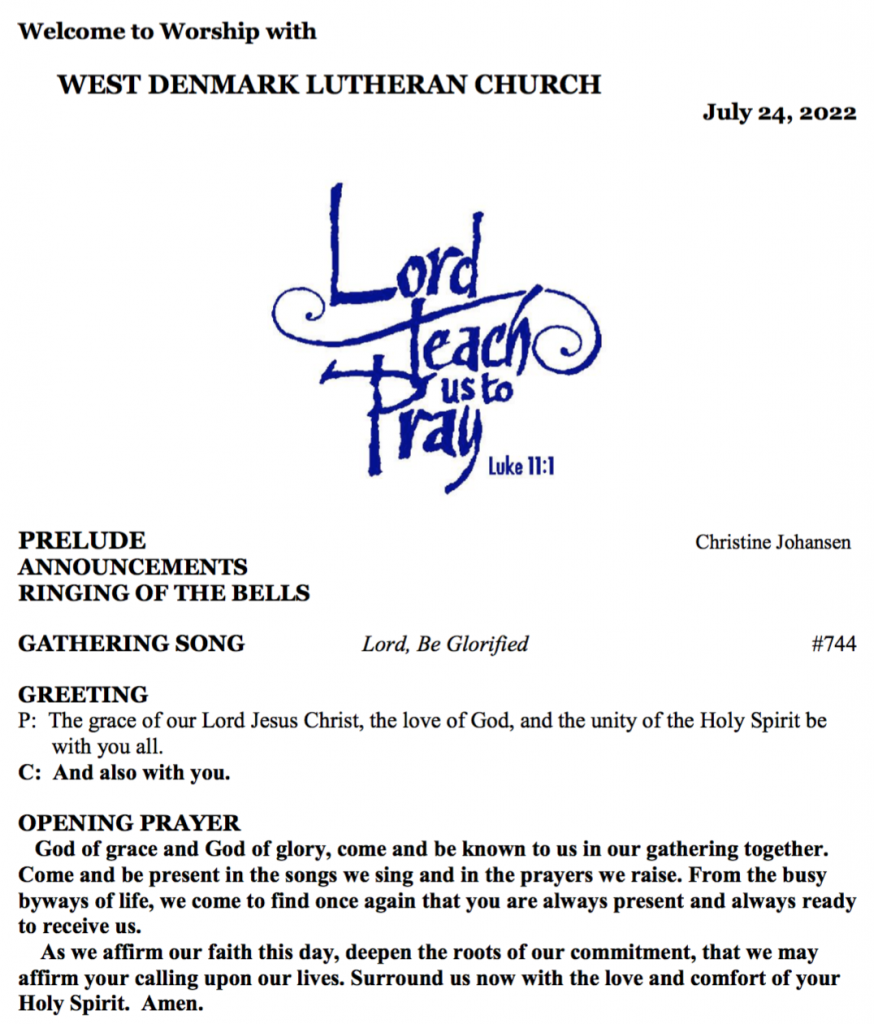
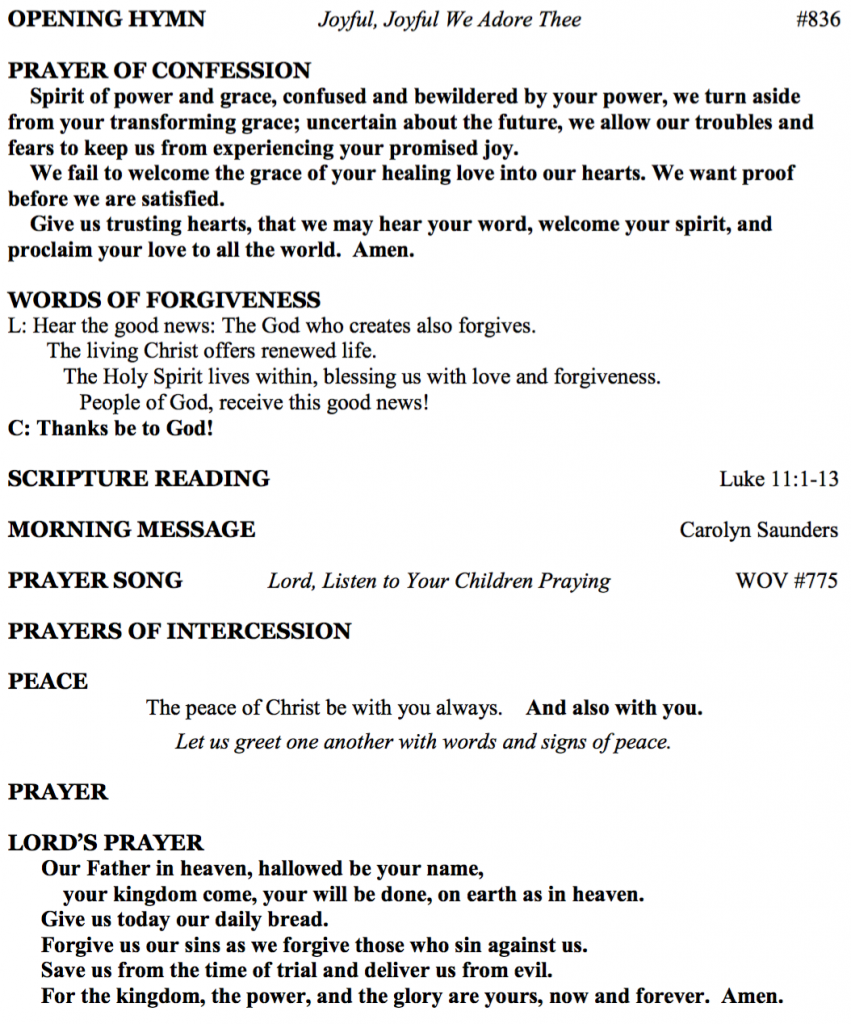
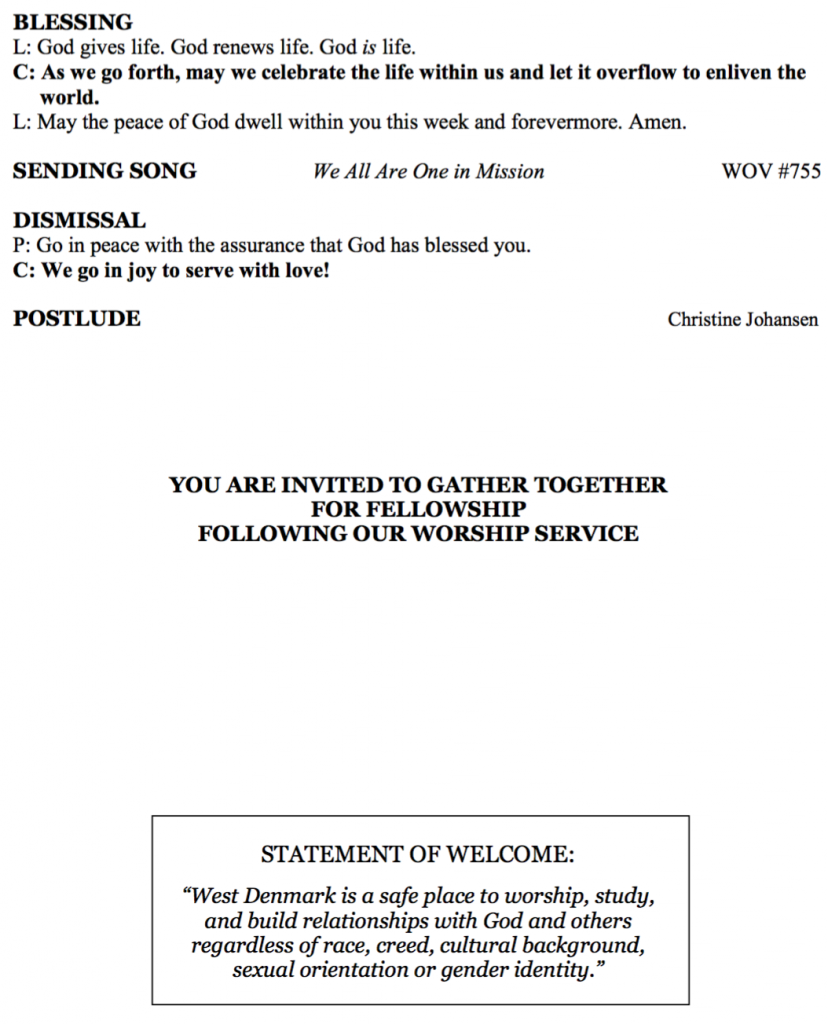
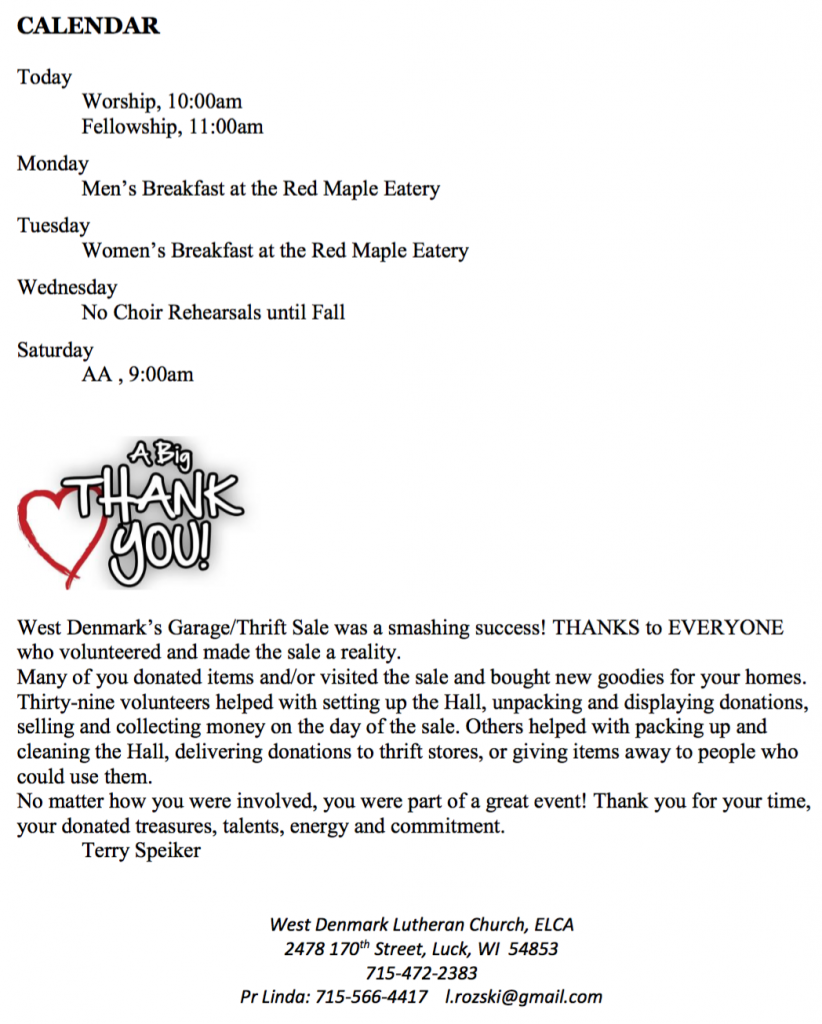
Worship ~ 17 July
Audio Recording
Worship ~ 3 July
Audio Recording
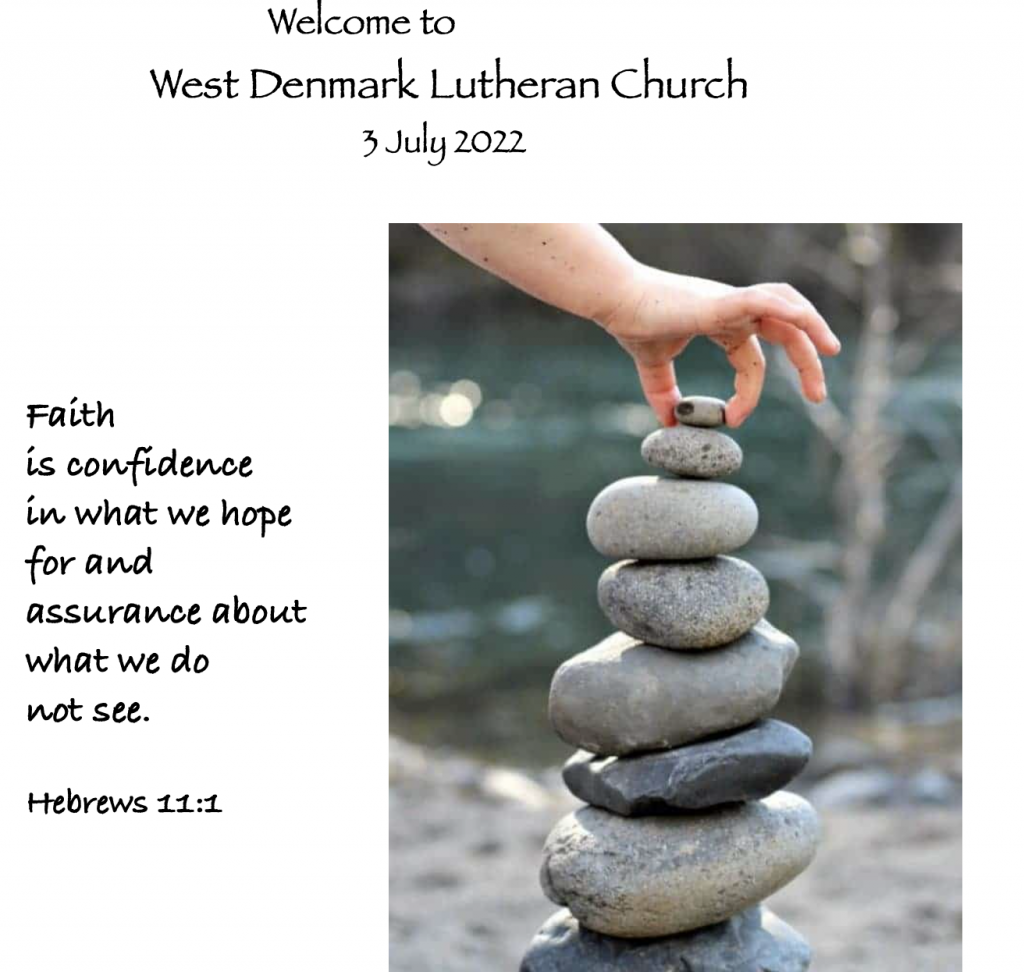
Week 4: Faith: What good is it? 3 July – Family Camp
For those of you who live too far away to join this terrific congregation every week and are too stuck in your ways to move(!), we are spending the summer with the apostle Paul’s triad of hope, faith, and love, and this week are transitioning into the topic of faith.
Before it became an institution and the religion of empire, Christianity was an underdog faith.
At its heart, it is still the faith of and for the meek and lowly ones. People who are oppressed, pushed down, belittled, made to feel unwelcome should – if Christians are doing their God-given job – find a balm for their wounded spirits, a home for their misplaced sense of self and self-worth, a welcome and safe harbor for the wounds of living – safety within the practice and community of Christian faith. Clearly, too often, Christians are not doing their job, but we’ll get back to that.
In Biblical times, the Jewish people were often underdogs, a wandering people, enslaved, governed by foreign powers. At times they grew strong enough to hold their own as a nation, indeed strong enough to become oppressors themselves. But, by Jesus’ day they had lost their independence and were under the thumb of the Roman Empire: although there was an understanding. The Jews were allowed to worship as they chose as long as it stayed under the radar. No revolts, no riots, no rebellion, pay your taxes and in exchange you may practice religious freedom. Roman rule didn’t care one way or another about the Jesus movement as long as it was considered a Jewish offshoot. Sadducees, Pharisees, Essenes, Zealots were all political parties within the faith, limbs of the Jewish tree. Initially, Christians were considered another branch. Jesus, the disciples, and Paul all considered themselves to be reformers of the faith not farmers planting a new tree. But, in time, the differences became too great to bear and the Christianity branch sheared off, denounced by Jews, and offensive to Rome because of the claim of allegiance to a king who was not Caesar. Persecution was spotty, and varied in intensity for about 200 years until Emperor Constantine issued the Edict of Milan in 313, legalizing Christianity. Ten years later, it became the official religion of the Roman Empire, and lost its innocence.
Empire is only good for those within it who wield power. The middle class does what they can to get by and the lower you are in the social echelon the greater the suffering. The same is true within institutions, including religions. So, the irony of religion, in this case the Judeo-Christian tradition, is that the people God intended to help – the widows, orphans and migrants in the Hebrew scriptures; the poor, isolated, outcast, spiritually wounded in Jesus’ time – these are the very ones who end up at the bottom of religions’ hierarchy of importance and care. As he said, Jesus came to heal the sick and not the healthy who need no physician, yet the sick were forbidden entrance into the holy community because of their illness. He fed the poor and hungry real food, as well as spiritual food, because of what use is spiritual enlightenment if your physical body is starving?
This is a very long introduction to the topic of faith and the question of the week: what good is it? If you don’t know me, I mean that as a real question. And if you do know me, you know I don’t have the answer. However, I’m paid to think about these things in advance, and so I have some ideas. Also, if you don’t know me, I tend to wander around in sermons and not necessarily land where you think it should go, so if you have a cool idea feel free to tune me out and follow where the spirit leads you. We’ll catch up at coffee.
The reading today is from the book of James, from chapter 2: 5Listen, my beloved brothers and sisters. Has not God chosen the poor in the world to be rich in faith and to be heirs of the kingdom that he has promised to those who love him? 6But you have dishonored the poor. Is it not the rich who oppress you? Is it not they who drag you into court? 7Is it not they who blaspheme the excellent name that was invoked over you?
8 You do well if you really fulfill the royal law according to the scripture, ‘You shall love your neighbor as yourself.’ 9But if you show partiality, you commit sin and are convicted by the law as transgressors.
14 What good is it, my brothers and sisters, if you say you have faith but do not have works? Can faith save you? 15If a brother or sister is naked and lacks daily food, 16and one of you says to them, ‘Go in peace; keep warm and eat your fill’, and yet you do not supply their bodily needs, what is the good of that? 17So faith by itself, if it has no works, is dead.
Hymn response: All is in our Father’s hand
What good is faith?
Let’s start with a definition: what is faith? I like the description from the book of Hebrews on the bulletin cover. “Faith is confidence in what we hope for, and assurance about what we do not see.”
As you can tell from this, faith is not primarily an intellectual activity. It’s not a mental exercise of convincing yourself of the truth of something unprovable and improbable. It shouldn’t hurt or insult you in the effort. It is confidence, assurance, trust – it’s a heart activity – or more accurately, it is communication of the emotional brain center in the amygdala with the higher processing pre-frontal cortex, taking in input from the language, music and visual lobes. It is feeling and thinking and imagination all in conversation with one another, with the rest of the body paying attention. We learn to trust gravity by falling down – or balancing rocks. We learn to trust God by falling down. Those who are well need no physician. Those who think they are God, have no need of a god. But for those of us who stumble and fall, faith in a power for good, greater than the harm and horror; faith in the collective expression of the spirit of God is an essential part of living.
We can’t see gravity and yet experience its continuing presence in our lives every time we put something down and it stays there. We can’t see God and yet experience the continuing presence of God all around us. But it’s more subtle than gravity. It’s in the way these words play together – confidence in what we hope for – assurance about what we can not see. Those unseen but hoped for elements are difficult when we desperately want more assurance, but magnificent at the same time, when we don’t know what to hope for or from where it might come.
But I’m not answering my question. What good is faith? Faith is personal and communal. It sustains and comforts and challenges us within, so that we behave outwardly in ways consistent with our inner best understanding of God’s way and will, then, formed, shaped, and encouraged by the faith community’s understanding and practice, we go on with our lives. Does that help? Not so much?
The communal part of faith carves off our individually sharp edges (finds the spoon in a hunk of buckthorn), or leads us in the dance so we’re not flailing around haphazardly as hazards, or collects our individual voices and random notes into a tune. Communal practice is where we learn to live together in peace. The practice is where we learn what needs and suffering exist and where we might add comfort or expertise. The practice is where the meek and lowly ones find strength and voice as equals. The communal practice of inner faith is where we find confidence in things hoped for, where we see the breadth of what is possible and believed.
The author of James says pretty boldly that faith without works is dead. This is where we circle back to empire and the loss of innocence. In Jesus’ day and the first centuries of Christian practice, the emphasis was on teaching about God’s way of love: compassion, justice for the common good, mutuality. As practice moved into empire it became legislated, memorialized in tradition, regulated. Some of that is inevitable, but it’s not necessarily true to the original intent. When we learn things by rote, we tend to forget the meaning of the words our mouths form. When we repeat traditions, we lose track of the freedom and joy that first caused the repetition. As religion gets top heavy, faith, which should be lively and deep and playful, becomes mechanistic and rigid and controlling… and unattractive.
So faith and religion are not the same thing. Religion, at its best, is the communal practice and mutual encouragement of the spiritual and practical gifts of believers living out their faith. It is inspired and inspiring; a house with rooms of welcome, and guides for beginners, and resting spots for the weary, and challenges for the explorers. Faith is the fuel, the food, and fountain that nourishes and propels.
The ‘good’ of faith, is personal and communal, for this life and for what may still come to be…a balm for our wounded spirits, a home for our misplaced self, a welcome and safe harbor for the wounds of living – safety within the practice and communion of the saints in light.
Worship ~ 26 June
This week’s worship was led by Barb Kass & Mike Miles